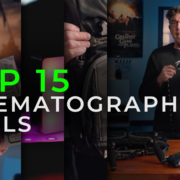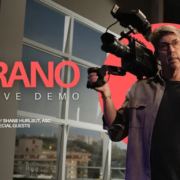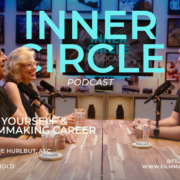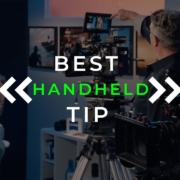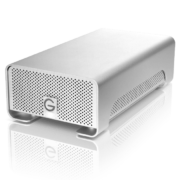A Worldwide Filmmaking Community with Filmmakers Academy
Filmmaking is one of few art forms that actually necessitates an entire village to see a particular project through to the end. From working with storyboard artists in pre-production to the many departments and skilled artists in production and post, there are a ton of creative forces working towards the same goal. We’re in a constant state of collaboration to properly convey the vision of the directors, producers, and executive teams. That’s why when I’m in the hiring process, I’m not only looking for skill and talent but also positivity and the willingness to learn. Bad attitudes sink ships in this business, which isn’t good for morale and productivity. A filmmaker who’s balanced in both skill and attitude can go a long way — and, yes — even if they’re still learning.
We talk a lot about cameras, gear, techniques, and methodologies here, but I can’t stress enough the importance of a solid network. When I first started in this business before I had my body of work to show, I really had to rely on my network of contacts. It’s an important part of this business and will ensure you keep working. So, when I hire now, where do I look first? Yep, you guessed it, the Filmmakers Academy network!

Map displaying the reach of the Filmmakers Academy
Keeping in touch with your fellow filmmakers and doing favors for each other is what really turns the gears of the industry. So, when I was approached to shoot Resident Alien up in Vancouver, the first thing I did was turn to our community members to see who was available. In doing so, I met Mark Miller who I now know as ‘Money Shot Miller’ because he knows how to bring it and nail the shot! We contacted Mark to recount his experience working on-set with me as well as the impact it had on his career. So, keep reading for a behind-the-scenes look at our process and how Mark grew before our very eyes.
The Power of the Filmmakers Academy Community Map
Many who have come to Filmmakers Academy for educational content are surprised by the efficacy of its vast community of filmmakers. It serves as the ultimate network for both prospective and seasoned filmmakers, and an amazing way to find and share opportunities.
It was in the fall of 2018 when I had the opportunity to work on Resident Alien, a sci-fi dramedy starring Alan Tudyk who plays a crash-landed alien named Harry that’s faced with a moral dilemma of his true mission on Earth. The director David Dobkin and I had worked together before on Into the Badlands and we already had a great relationship, but everything else was new to me — a new gaffer, key grip, camera team, everyone.

Director David Dobkin standing in front of the mirror
When putting together my team, the first thing I did was turn to the Filmmakers Academy community map. I needed a solid gimbal tech. This is where I discovered Mark Miller, who was an Inner Circle member who had transitioned into the Filmmakers Academy. And as an FA member, Mark had mutual contact with fellow member Josh Knepper who was a camera operator on the project.
Choosing the Ideal Candidate

What initially drew my eye to Mark was his proficiency in working with gimbals. And his background really displayed his passion for the equipment. With his SugarShark Productions company, Mark specializes in all things smooth. This means gimbals, drones, and car rigs. He began his pursuit in the industry by filming music videos, car commercials, specialty shots for MOWs, and other films. Mark is also a member of IATSE 669 as an Aerial DP. He seemed like the perfect candidate for the way I love to move the camera, which isn’t with a Steadicam but rather with the Ronin II or MoVI Pro as my preferred handheld gimbal.
So, naturally, I reached out to Mark immediately to start the conversation. Mark was absolutely ecstatic. When interviewed by a member of my team, Mark said, “When Shane first contacted me, I didn’t believe it was him. I had to Google and check Facebook just to be sure! The potential of working with my teacher and mentor made meeting him that much more exciting.” From the start, I could see Mark’s passion for the job and it was obvious that he was going to bring this spirit day in and out.
‘Antigravity Rigs, Master Wheels, MoVI Pro Gimbals, Oh My!’
Mark’s responsibilities on Resident Alien involved building and maintaining our specialized equipment that included an Antigravity rig, Black Arm, Master Wheels, and MōVI Pro gimbals, among other gear. When Mark saw all the equipment, he was like, ‘I feel like a kid in a candy store!’ That’s exactly what you want to hear from your gimbal tech.
While in our early planning stages, I also sought out Adam Teichman, founder of Cinema Devices. As I mentioned above, relationships are so important, and I truly value my personal relationship with Adam. So, when I called Adam, I asked if he had sold much up in Canada or, more specifically, Vancouver. When he said he hadn’t, I had an idea that would work for both of us. He could lend me his antigravity rig as a loaner and then I could see if there was any interest in it up north. Do you want to know how invested Adam and Cinema Devices really are? Adam flew up and together with Mark and Chris Herr, my gimbal operator, and tech, we made Adam’s system really work for us.

Adam Teichman of Cinema Devices, ProductionHUB
This really speaks to Cinema Devices and especially Adam as its founder. They really care about supporting artists and they’ve taken gimbals to the next level! Adam brought all of his bells and whistles, and then Chris and Mark really made it sing.
“I’ve operated the MoVI Pro with the ready rig but this antigravity rig was on another level,” said Mark when recollecting his experience with the gimbal. “It’s like wearing an alien suit! It’s practically a flying jib. You can scratch the floor with the camera and boom up to an overhead shot all in one fluid motion. And directors love it!”
Mastering and Modifying Gimbal Technology
We developed a hybrid of sorts to work for us. Specifically, it has a much smaller platform so it could fit through doors and doesn’t live far out away from you. That way, you can keep it tight to the body for better handling.

These alterations worked for Mark, which he really seemed to like.
“Gimbals can be temperamental and have a mind of their own,” Mark explains, “You must have a sixth sense when something isn’t right. The camera build needs to be made very compact and at the same time, the components have to be accessible in case they need to be swapped out. I prepared a tool kit and ample spare parts in a separate ditty bag to accompany me at all times. With Shane, you need to be ready and stay ahead of the game.”
Once Mark was pushed out of his comfort zone, he really dove in deep. He took it upon himself to do all the research. At this time, the MoVI XL had just hit the market. Obviously, I also asked Mark to learn its finer details so he could become a remote head specialist on top of the MoVI Pro and Antigravity rig. Mark mentioned more than a few times that he felt completely underwater. But he rose to the occasion, kept coming back, and delivered excellence.
Growing Starts by Pushing Yourself Out of Your Comfort Zone

I think Resident Alien and the pilot is a testament to Mark’s amazing gimbal work. The way the camera moves seamlessly with the actors and actresses just felt right for the story. These are the wonderful moments that you find yourself in, especially after reaching out and taking a chance on technicians and co-collaborators. It’s never simple working with a new crew which is why it’s imperative that you surround yourself around amazing filmmakers that then help you bring the director’s vision to life. And having Mark was a huge weight off of my mind.
Acquiring technicians that really wanted to push the envelope and stretch their skills out of their comfort zone was absolutely paramount to the success of this pilot. The Filmmakers Academy community, composed of exceptional talent, is serious about their craft and investing in their futures. Trust me, there’s a key difference between taking a chance on individuals outside of your network as opposed to those who are part of a community that’s actively putting in the work and expressing an initiative to learn and grow.
The beauty of Filmmakers Academy members is the assurance that they have a brick-and-mortar foundation from our on-the-job training content. Members take the initiative and it’s the discussions within the community that elevates the learning for everyone. Plus, they’re actively investing in themselves. That alone speaks to dedication, which also reveals resiliency and work ethic. And, guess what, Mark displayed exactly that.
Now, there were days when Mark made mistakes. But, it’s about being clear with your team and working through challenging moments. Everyone learns onset and not everything works perfectly the first time. So, when there was a misstep, I was upfront with him. When he made a great move, I told him how awesome it was. Showing a sense of support and understanding, while also being honest and blunt, is how you grow and develop. The job isn’t always going to be easy or feel good. But when you nail it and feel that sense of pride and accomplishment — well, that’s what it’s all about.
Overcoming the Challenge
One of my favorite things to know after working with filmmakers from our community is what was their most challenging moment on set, and how did they overcome it? This says a lot about a filmmaker. With Mark, I had a hunch what moment this could be — but I’ll let him tell it.

“I was doing a Oner handoff from the G35 crane. The camera was on a MoVI, mounted on a crane at a high-angle while pointing down; slowly booming down and tilting up at the same time. As the camera almost reaches the ground, I slide the MoVI off the crane and walk it straight through the doorway of a house, landing inside on two actors’ faces for some dialogue. It was a handheld MoVI move without a vest. We only had 15 minutes to pull it off and the pressure was on. I was a little nervous catching it so Shane and I exchanged a few choice words. But Shane supported me with his guidance and experience and we made the shot after the 3rd attempt. It was after that day Shane gave me the nickname Money Shot Miller.”
Make Lifelong Contacts with Filmmakers Academy
Establishing a good work ethic and working relationship is key to receiving more work. When I went back to Vancouver to film Love Hard for Netflix (directed by Hernan Jimenez), guess who was one of the first people I called? That’s right, once again I deployed Money Shot!

Mark came in and again I challenged him with the Ronin II and the DGI wheel setup. At the time, he wasn’t accustomed to either. So, I told Mark to become obsessed with every detail of the gear. And he did. He called Chris Herr and acclimated himself with the system and intel.
Chris gave Mark the entire rundown. He informed him about what works for me, what I like to do, and how I like to roll out. He ran down all the key tasks – the specific items to hit and things to check on to ensure he does this, that, and the other. More specifically, Chris guided Mark when the MoVI XI experienced a ‘Texas drift’ and didn’t want to keep the pan access stable. They performed a few adjustments and, voila! It was solid as a rock again.
Preparation is the Best Comfort Zone
There were even more gadgets on Love Hard than we had on Resident Alien, and Mark was chomping at the bit! By this time he was relaxed and prepared to meet the challenges.

“There was much more crane activity which kept me very busy at times. I built a lot of experience and confidence mounting the camera package in so many different configurations including over-slung, under-slung, handoff rig, and black arm. There were times I found myself without enough time to prep when building the rigs, but learned how to manage the pressure and take the time to deliver the rig in full-working-order to set. I started with equipment that was new to me. Learning, growing, and mastering it by the end of the shoot was very rewarding. Experience is everything. You can plan for weeks but there’s nothing like being in the moment.”
By Day 1, Mark was more than prepared. And just to make sure, we went ahead and tossed him directly into the frying pan! Mark immediately had to build and master the Ronin II and the DGI wheels for this elaborate shot that was more than 3 and a half minutes that he navigated through 5 different rooms. And. It. Was. Awesome.

Mark remembers this moment with particular fondness.
“I can remember numerous occasions when Shane pushed me outside my comfort zone. For the 3 and a half minute Oner, a lengthy single-take shot, the shot was chasing the lead actress through a very narrow set in a house with a series of twists and turns with an antigravity rig. It was a perfect harmony of 3 people: Brett Manyluck on wheels, myself on an antigravity rig, and Ryan Monro on a dolly grip guiding me through the doorways, all in unison to make the shot happen. You’re only as good as your team. It took a few tries but we finally nailed the shot.”
Quick Recap
The best part of this business is when you have the chance to meet someone new and really bond. Working alongside Mark and watching him work and master all the gear around him was amazingly rewarding. He had such a great attitude and I just know that Mark will only continue to grow and become a leader in his craft. I hope to work with him again in the future.

This loving community is talented, dedicated, and ready to deliver its best. Reach out when you have a new job or when you are looking to expand your network. Take a risk on somebody that might not necessarily have the resume or the skillset yet. If you push them out of their comfort zone and challenge them, you can watch them rise to the occasion before your eyes.
The Bottom Line
My amazing experience with Mark was all made possible via the Filmmakers Academy. It’s an extremely useful resource for filmmakers. When you think you’re in over your head or need some extra reference to save face, the lessons and courses (as well as our community) will help guide you out of any pickle.

We had a total of 4 Filmmakers Academy members on the set of ‘Love Hard’
Take it from Mark, “I remember a pilot that I was DPing. The project was very intense and that was the first time I realized how important practical knowledge was. Watching Filmmakers Academy’s videos gave me the confidence and knowledge to tackle projects I would normally pass up. The Filmmakers Academy really helped me build skills in cinematography and answered questions to some of my problems. You can get stuck in your comfort zone easily. But Shane pushes you to keep learning and challenging yourself, which is the job of filmmaking.”

